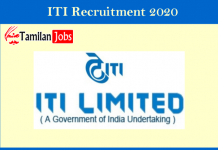 If you have quit your job, you can withdraw your Employees’ Provident Fund (EPF) money even before the completion of five years. However, according to the income tax rules, such withdrawals will be taxable. And not many people know of the tax aspect of withdrawing their EPF money.
If you have quit your job, you can withdraw your Employees’ Provident Fund (EPF) money even before the completion of five years. However, according to the income tax rules, such withdrawals will be taxable. And not many people know of the tax aspect of withdrawing their EPF money.
According to EPF rules, a member can withdraw up to 75 per cent of the accumulated corpus after one month of quitting a job. Further, he/she can withdraw the remaining 25 per cent and opt for final settlement in case of unemployment for more than two months.
Practising chartered accountant, Sachin Vasudeva says, “According to income tax laws, withdrawal from EPF before the completion of five continuous years of service is taxable. The five years of service can be completed either with one employer or more than one. On the other hand, if you withdraw the money after the completion of five years of service, this amount will be exempt from tax.”
Chartered Accountant, Naveen Wadhwa, DGM, Taxmann.com explains that the withdrawal from EPF before the completion of five years is taxed in the year of withdrawal. However, the tax rates that would be applicable in such case would be those that were applicable to you in the year in which contributions were made, he adds.
Suppose you made EPF contributions between FYs 2014-15 and 2016-17. Then, in FY 2017-18 you quit your job and in the same year you want to withdraw the accumulated EPF money. In such a scenario, the withdrawal from EPF will be taxable in FY 2017-18 (AY 2018-19). However, the tax rate on EPF withdrawal will be the marginal tax rates that were applicable to you between FYs 2014-15 and 2016-17.
EPF contribution is made up of four components – employee’s contribution, employer’s contribution, interest on employee’s contribution, and interest on employer’s contribution. Out of these, three components – employer’s contribution and interest earned on both the contributions are fully taxable.
“According to rule number 9 of schedule IV and section 111 of the Income Tax Act, the rules of unrecognised provident fund would be applicable in case of withdrawal before the completion of five years. All the four components of EPF will be taxable. The amount of tax liability would have to be recomputed for each of the financial years at the tax rates that were applicable to the withdrawer in those respective years,” says Wadhwa.
“The taxability of your contribution, i.e., employee’s contribution will depend on whether you had earlier claimed deduction under section 80C while filing your income tax return (ITR) in the previous years,” says Vasudeva.
Employee’s own contribution to EPF is eligible for deduction under section 80C of the Income Tax Act. Most of salaried employees use this as a way to save income tax while doing their tax planning.
Wadhwa adds, “Even if your current income tax liability is zero, you are still liable to pay tax on the withdrawal from EPF. This is because it is the tax liability for the previous financial years when PF contributions by you and your employer were made. It would have been taxable had the PF been an unrecognised one from the start.”
Let us see how your tax liability will be impacted in both the cases:
Case 1: When deduction under section 80C is claimed on employee’s own contribution to EPF
“If you have claimed deduction under section 80C, while filing your ITR for the previous years, then the same (employee’s contribution to EPF) would be taxed,” adds Vasudeva.
According to rule 9 of schedule IV of the Income Tax Act, the rules of unrecognised provident fund will apply, making all the four components fully taxable in your hands.
Case 2: When deduction under section 80C is not claimed
“On the other hand, if the deduction under section 80C is not claimed by you for the contribution made by you in the EPF, then only your contribution will not be taxable. The other three components will be taxable at the tax rates that were applicable in the year of contribution,” says Wadhwa.
Mr A works in a company and following are the contributions that have been made by him and his employer to EPF. The interest rate earned by him is 8.55 per cent (assumed) for every year.
| FY | Employee’s Contribution | Employer’s Contribution | Interest on employee’s contribution | Interest on employer’s contribution |
| 2014-15 | 54000 | 54000 | 4590 | 4590 |
| 2015-16 | 96000 | 96000 | 8160 | 8160 |
| 2016-17 | 144000 | 144000 | 12240 | 12240 |
The taxable income and tax paid in above financial years are as follows:-
| FY | Taxable Income | Tax Paid |
| 2014-15 | 450000 | 18540 |
| 2015-16 | 800000 | 87550 |
| 2016-17 | 1200000 | 190550 |
He withdrew the entire accumulated balance of PF in FY 2017-18, i.e., before continuous service of 5 years, here’s how his tax liability will be computed in both the cases:
When deduction under section 80C is claimed
| FY | Taxable Income | Withdrawal of Sec 80C deduction | Employer’s contribution | Interest (Employer & Employee) | Revised Income | RevisedTax | Tax paid | Differential Amount of tax to be paid |
| 2014-15 | 450000 | 54000 | 54000 | 9180 | 567180 | 39589 | 18540 | 21049 |
| 2015-16 | 800000 | 96000 | 96000 | 16320 | 1008320 | 131321 | 87550 | 43771 |
| 2016-17 | 1200000 | 144000 | 144000 | 24480 | 1512480 | 287106 | 190550 | 96556 |
When deduction under section 80 is not claimed
| FY | Taxable Income | Employer’s Contribution | Interest (Employee & Employer) | Revised Income | Revised Tax | Tax Paid | Differential Amount of tax to be paid |
| 2014-15 | 450000 | 54000 | 9180 | 513180 | 28465 | 18540 | 9925 |
| 2015-16 | 800000 | 96000 | 16320 | 912320 | 110668 | 87550 | 23118 |
| 2016-17 | 1200000 | 144000 | 24480 | 1368480 | 242610 | 190550 | 52060 |
Cess is included in tax liability. Source: Taxmann.com All figures in Rupees
Therefore, in FY 2017-18 (AY 2018-19), the additional tax liability will be Rs 1.61 lakh when deduction under section 80C is claimed. On the other hand, if no deduction is claimed, additional tax liability will be Rs 85,103.
When withdrawal is not taxable
Wadhwa says, “There are certain cases when withdrawal before five years does not become taxable. These cases are as follows:
a) If the service is terminated due to employee’s ill health;
b) Due to discontinuance of the employer’s business;
c) Or any other reason beyond the control of the employee.”






























